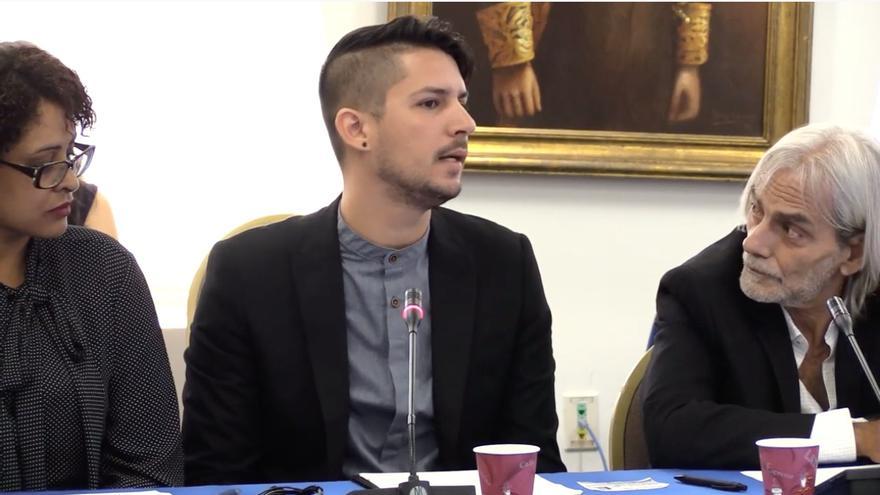
![]() 14ymedio, Havana, 24 September 2019 — The absent voice at the hearing at the Inter-American Commission on Human Rights (IACHR) on Monday was that of the Cuban government. During the session several activists residing inside and outside the island denounced the serious violations of freedom of speech and the press, according to Carlos Alejandro Rodriguez, editor of the magazine Tremenda Nota, speaking to 14ymedio.
14ymedio, Havana, 24 September 2019 — The absent voice at the hearing at the Inter-American Commission on Human Rights (IACHR) on Monday was that of the Cuban government. During the session several activists residing inside and outside the island denounced the serious violations of freedom of speech and the press, according to Carlos Alejandro Rodriguez, editor of the magazine Tremenda Nota, speaking to 14ymedio.
At the September 23 meeting at the headquarters of the Organization of American States (OAS), in Washington, were representatives from the Institute on Race, Equality and Human Law, the Cubalex Legal Information Center and, also, representatives of several alternative media such as Diario de Cuba and Tremenda Nota.
The editor of Tremenda Nota, a magazine dedicated to minorities, was one of those who gave testimony in Washington.
Speaking to 14ymedio, Carlos Alejandro Rodríguez regretted that the Cuban State does not appear at these hearings. “We would have loved the Cuban State to appear at the hearing to refute our demands. We refer to undeniable facts — such as the imprisonment of Roberto Quiñones Haces — and we would have liked to know how the State would have justified the repression, beyond calling us mercenaries and agents of the empire. Unfortunately, the Cuban State does not offer information to the rapporteurs and commissioners, nor does it comply with the recommendations.”
“In recent months we have seen how repression against independent journalists has increased and is resorting to legal mechanisms against us to abandon our work,” he added.
At the meeting, Cubalex offered detailed information on the 171 arbitrary detentions of journalists counted between 2016 and 2018, and about 700 cases of restrictions on internal and external mobility applied by the Cuban authorities.
Carlos Alejandro Rodríguez denounced that the Government “blocks most of the alternative media outlets that it cannot control,” and specifically pointed out the case of the medium in which he works.
The editor of Tremenda Nota noted that Decree-Law 370, recently approved by the Council of Ministers, opens the door to the illegalization of Cuban websites hosted on foreign servers. “In Cuba we can be condemned for collaborating with or managing these media,” he said.
The independent reporter Luis Cino told 14ymedio that he denounced “repression of journalists, arbitrary detentions, interrogations, blackmail, threats and also travel bans,” suffered by those in Cuba who work in journalism on the sidelines of Government. “The commissioners of the IACHR were very receptive,” he said.
For Cino it is important to make these denunciations “because world attention is focused on Venezuela and they tend to see Cuba as a country that is changing and returning to normal. And in reality everything is getting worse.”
The protection of the Amazon in Brazil, the peace in Colombia and the Central American migration to the US are among the central axes of this session that the Inter-American Commission on Human Rights begun on Monday.
The organization’s executive secretary, Paulo Abrao, explained that the hearings will have the same spine: migration, asylum and attempts by states to restrict that right.
According to tradition, human rights defenders make complaints at hearings, governments try to justify their decisions and the IACHR gives its recommendations. In many cases, as in Cuba, this is the only opportunity for activists to ask the State for explanations.
__________________
The 14ymedio team is committed to serious journalism that reflects the reality of deep Cuba. Thank you for joining us on this long road. We invite you to continue supporting us, but this time by becoming a member of 14ymedio. Together we can continue to transform journalism in Cuba.
